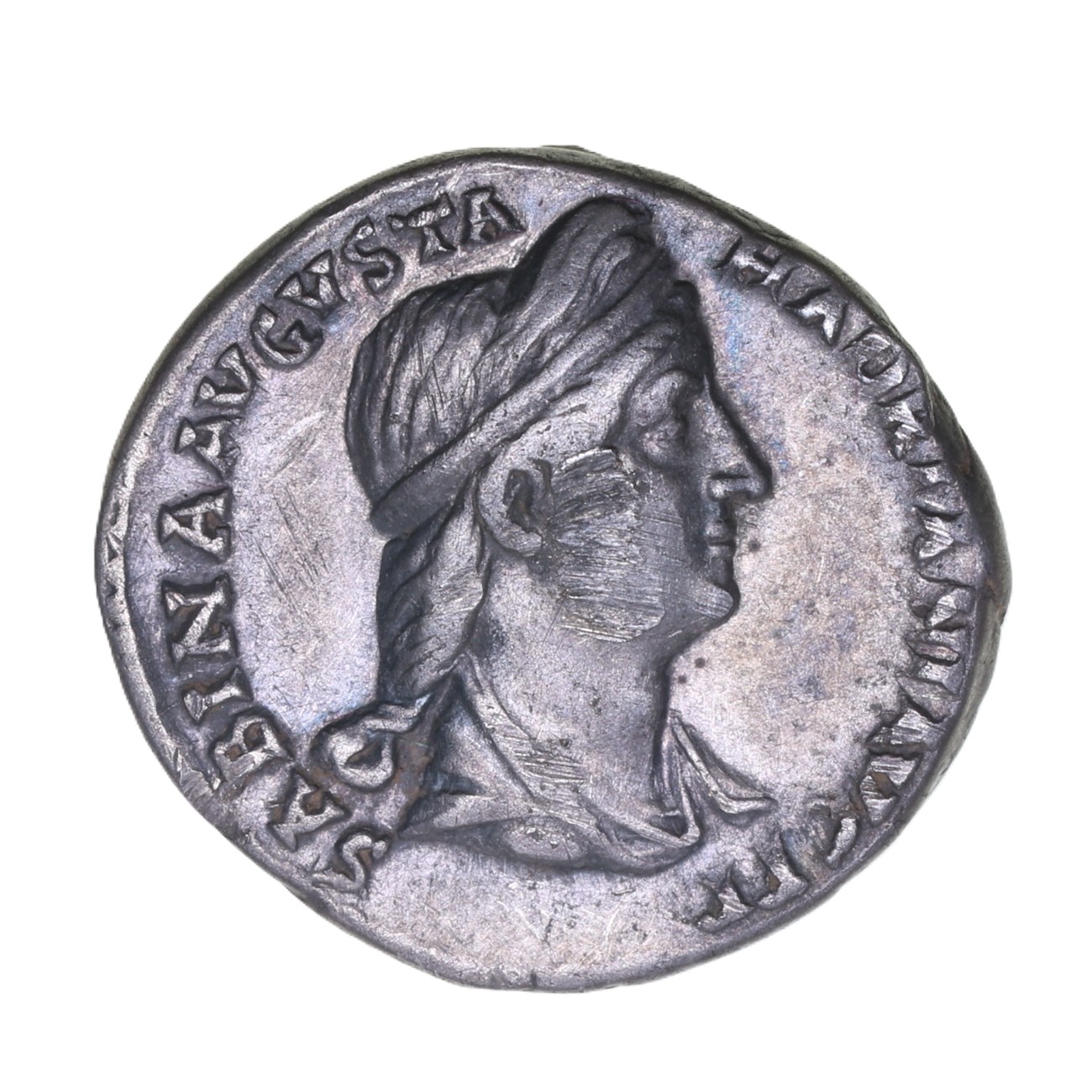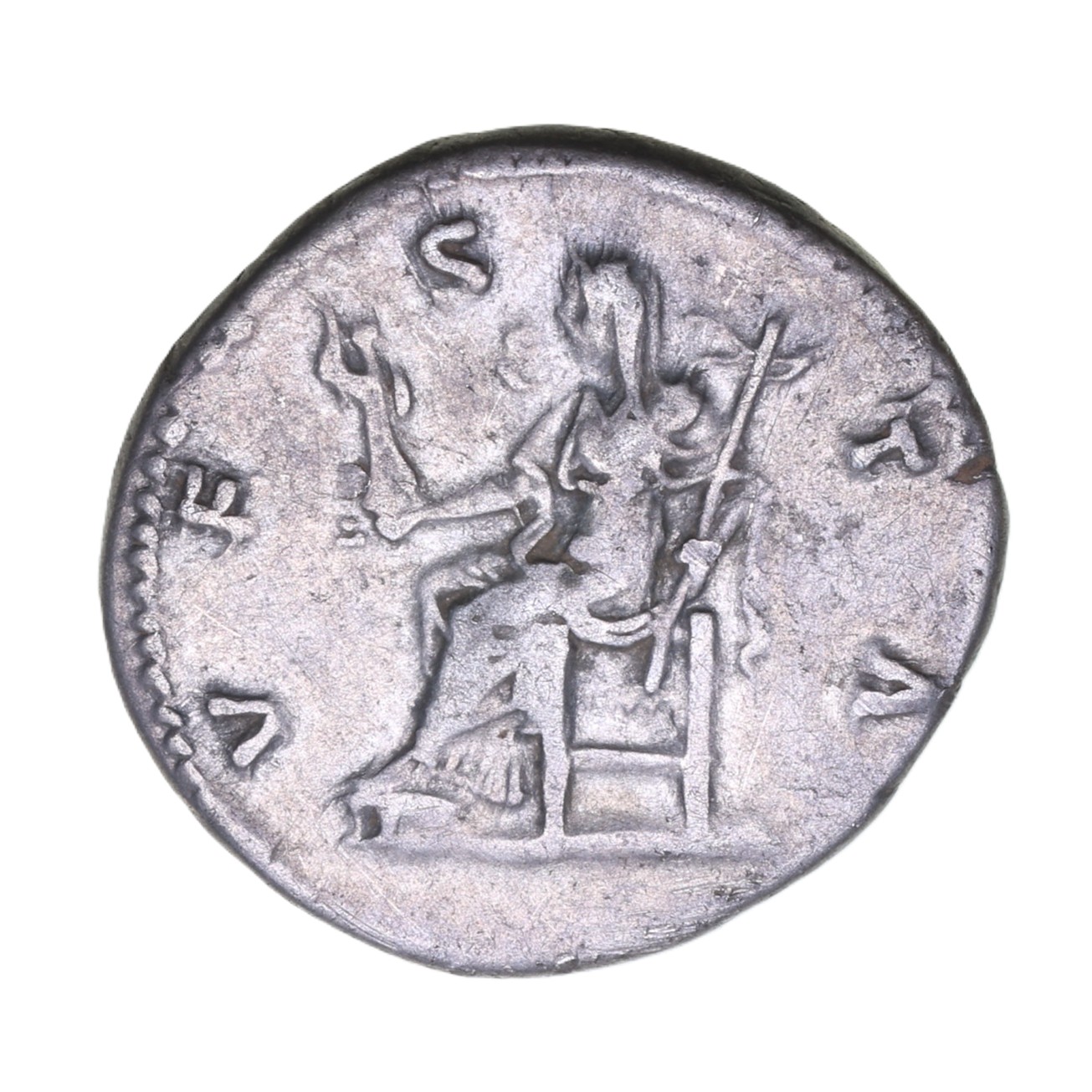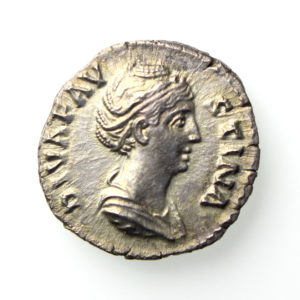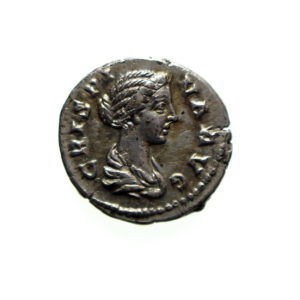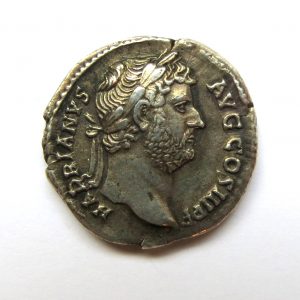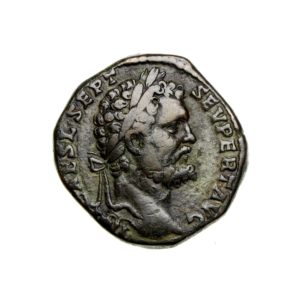Sabina wife of Hadrian AD 117-138 Silver Denarius Rome * British Find*
£99.00
Sabina wife of Hadrian AD 117-138 Silver Denarius
Vesta enthroned left
Rome mint
RCV3923; 17mm, 3.17g.
This coin was found in the vicinity of Beckfoot Roman Fort, Cumbria.
Classical References for Bibra
The sole classical geographical source for the Roman name of the Beckfoot fort is the Bribra entry in the Ravenna Cosmology (R&C#119), which appears between the list entries for Alauna (Maryport) and Maglona (Old Carlisle).
The Bibra Garrison
To date, only one inscribed stone has been uncovered from Roman Beckfoot, which fortunately provides the name of one of its garrison units; Cohors II Pannoniorum, a five-hundred strong infantry unit from the province of Pannonia, the region of the modern Czech Republic.
Hadrian
Like his predecessor, Trajan, Hadrian was born in Spain around AD76. He entered Trajan’s household by marrying Sabina who was daughter of Trajan’s favourite niece Matidia. As a young man he had a military career and by the time of Trajan’s death in AD 117 Hadrian was governor of Syria. As Trajan was childless Hadrian was strongly backed as heir by the army as well as Trajan’s empress Plotina.
Hadrian was keen to experience the diverse peoples of his massive empire and as a result much of his reign was spent travelling. Unlike Trajan who pursued an expansionist policy Hadrian thought that the empire needed to be consolidated and as a result initiated the construction of an elaborate frontier system. In Britain this took the form of the construction of Hadrian’s Wall and the withdrawal of troops from Southern Scotland.
Hadrian was an able administrator and initiated several major building works which included the construction of the Pantheon in Rome. Whilst considered to be one of Rome’s great emperors he could at times be cruel and vindictive. Hadrian was particularly fond of Greek culture and it was while touring his eastern provinces that he met Antinous, a youth who became a favourite. Accompanying Hadrian on many of his tours Antinous was greatly mourned when he accidentally drowned in the Nile. The great Jewish revolt which was a major event took place towards the end of Hadrian’s reign. The revolt resulted in great loss of life and destruction. Jews were excluded from Jerusalem which was rebuilt as a pagan city.
The coinage of Hadrian is particularly diverse with many reverse types commemorating the Empires provinces and the interest taken in them by the emperor. Hadrian also produced posthumous issues honouring Trajan and Plotina as well as his own wife Sabina and his favourite Antinous.
Out of stock

